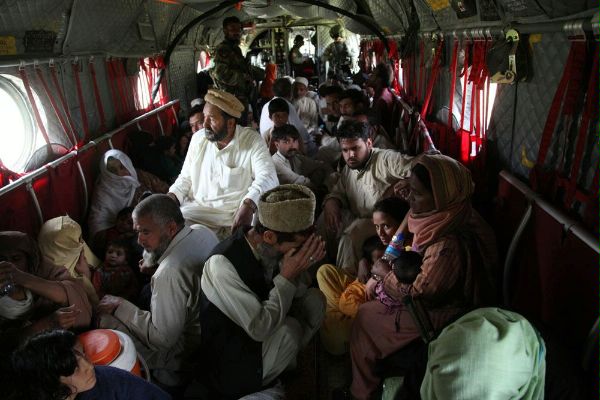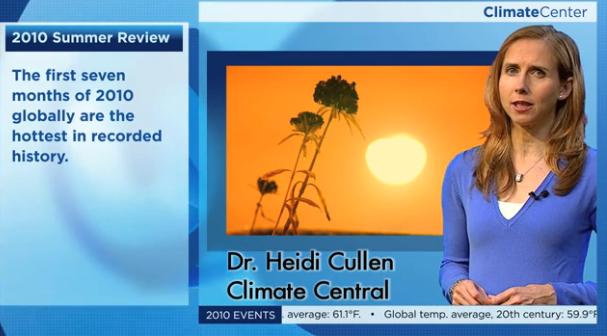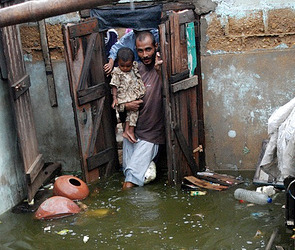Pakistan
-
Living in ‘the latest Hollywood global disaster movie’
Save your $10 and skip the movie theater this summer. "The litany of weather incidents during the summer of 2010 reads like the latest Hollywood global disaster movie," Nathanial Gronewold writes at Climatewire.
-
Summer 2010 is breaking heat records [VIDEO]
More than five weeks remain of summer, and already it's a record-breaker. A climatologist looks at what's behind the heat and extreme weather so far.
-
Does one bad-ass summer prove climate change?
Hellish smog in Russia. Apocalyptic floods in Pakistan. The hottest May through July on record in the parts of the US. Is a "we told you so" in order?
-
Water and the War on Terror
While leaders in Washington have been war-gaming the national security risks of climate change, they’ve only started to connect the dots to the closely related threats emanating from the growing crisis of global freshwater scarcity. At first blush, water and national security may not seem to be interlinked. But the reality, as narrated in my […]
-
Climate change mitigation is related to building democracy and decreasing poverty
While the climate change "issue" is covered frequently in the press and is implicitly or explicitly part of the U.S. presidential campaign, for developing countries it is just one of many pressing issues. For the man on the street, at least in many of the countries I visit, climate change is important but not urgent.
The same could be said of many other issues, of course, but what distinguishes climate change is that it is perceived as "an act of God" on which individual actions have only minimal impact. Unless it is linked to issues of social justice, energy security, economic growth, and the aspirations of a growing middle class in developing countries, support for action on climate change will remain pegged to the fortunes and attention of environmental liberals in the developed North.
While on a recent trip to Pakistan, shortly after the Nobel Committee's Peace Prize announcement, I asked several people, "What do you think of Al Gore and the climate change issue winning the Nobel Peace Prize?" or alternatively, "What do you think climate change means for you and Pakistan?" Even to me these questions seemed ridiculous given what's going on in Pakistan -- especially the events of the past week, whenpa a U.S.-sponsored general showed what kind of friend he is to democracy. Answers ranged widely, from a sophisticated intellectual who had attended a viewing of Al Gore's film as part of a film discussion club, to people who had heard of Clinton but not Al Gore, to a few who said they had never heard of climate change.
I looked in vain for any mention of climate change in the opinion pages of local newspapers, and while there was vibrant debate over important international issues (e.g., the nature of democracy, government ineptitude, pollution, poverty, the U.S. playing kingmaker, and energy shortages), there was nothing on climate policy. (Aside, that is, from glowing mention in a few blogs of the fact that one Pakistani national, Professor Adil Najam at Tufts University in the U.S., is a member of the IPCC and thus partial recipient of the Nobel Prize -- read his blog here.)



